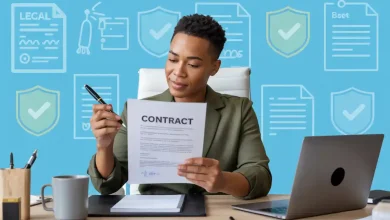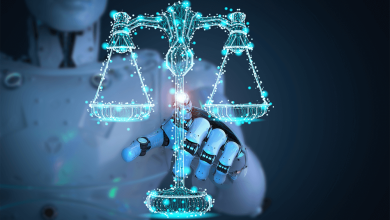Content Creator Law: Essential Legal Guide for Influencers
Navigating the Legal Landscape: How Influencers Can Protect Their Work and Rights

Content creator law is a growing field that helps influencers, YouTubers, bloggers, and other online creators protect their work and income. As the influencer industry grows, so do the legal challenges. This article explains what content creator law is, why it matters, and how influencers can stay safe and successful.
What Is Content Creator Law?
Content creator law covers all the legal rules that affect people who make and share content online. It includes laws about contracts, intellectual property, advertising, privacy, and disputes. These laws help protect creators’ work, money, and reputation.
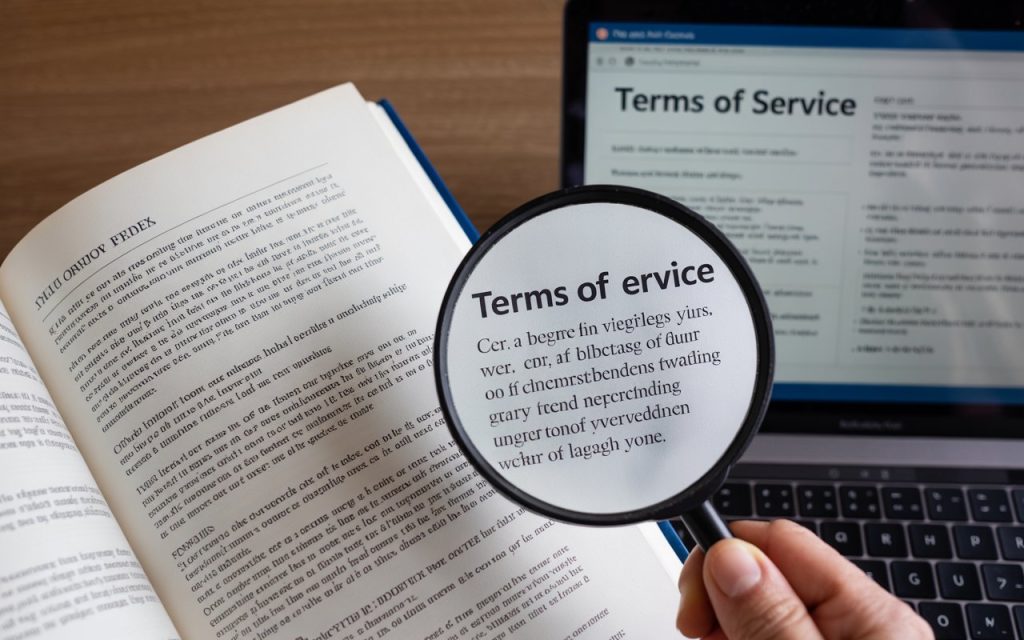
Why Do Influencers Need Lawyers?
Influencers may not need lawyers at the start, but as they grow, legal issues become more important. Here’s why:
- Contracts: Influencers sign deals with brands, agencies, and platforms. Lawyers help them understand and negotiate these contracts.
- Intellectual Property: Creators need to protect their videos, photos, and ideas from being stolen or copied.
- Advertising Rules: Influencers must follow strict rules about sponsored posts and disclosures.
- Privacy and Data: Creators collect information from fans and must follow privacy laws.
- Disputes: Sometimes, influencers have problems with brands, platforms, or other creators. Lawyers help solve these issues.

The Rise of Content Creator Law
The influencer industry is booming, and the law is trying to keep up. More law firms now specialize in content creator law, and there are more resources and guides for influencers than ever before. This means creators have better access to legal help and information.
Key Legal Issues for Content Creators
Here are the main legal issues influencers face, and how lawyers can help:
1. Contracts
Contracts are the foundation of influencer deals. A good contract should be clear and fair. Lawyers help influencers:
- Understand the terms
- Negotiate better deals
- Avoid bad clauses (like giving up too many rights)
2. Intellectual Property
Intellectual property (IP) means the rights to creative work. Lawyers help influencers:
- Protect their own content
- Avoid using other people’s work without permission
- Register trademarks or copyrights if needed
3. Advertising and Disclosure
Influencers must follow rules about advertising. In most countries, they must clearly say if they are paid to promote a product. Lawyers help influencers:
- Understand the rules
- Avoid fines or legal trouble
- Create clear and honest posts
4. Privacy and Data Protection
Influencers often collect personal information from their fans. They must follow laws about how this data is used and stored. Lawyers help with:
- Privacy policies
- Data protection rules
- Handling sensitive information
5. Disputes and Legal Action
Sometimes, influencers have problems with brands, platforms, or other creators. Lawyers can help:
- Negotiate solutions
- Take legal action if needed
- Protect the influencer’s reputation
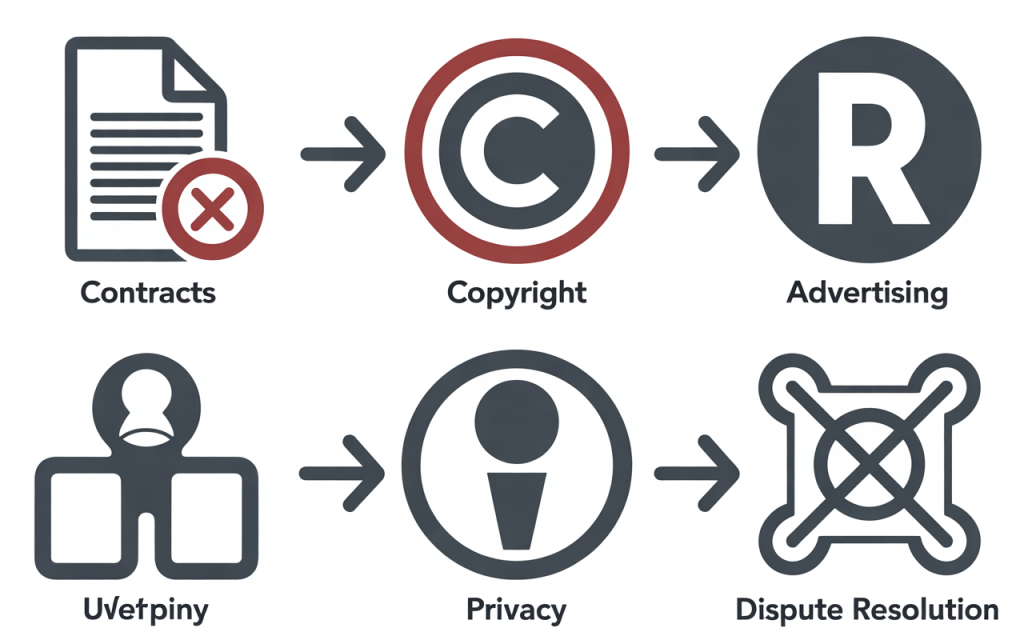
Table: Common Legal Issues for Content Creators
| Legal Issue | Why It Matters for Influencers | How Lawyers Help |
|---|---|---|
| Contracts | Protect rights and income | Review, negotiate, explain |
| Intellectual Property | Protect original content | Register, enforce, defend |
| Advertising & Disclosure | Avoid fines and legal trouble | Advise, review posts |
| Privacy & Data Protection | Protect fans’ personal information | Draft policies, ensure compliance |
| Disputes & Legal Action | Solve conflicts, protect reputation | Negotiate, represent in court |
How to Find and Work with a Content Creator Lawyer
Not all lawyers understand content creator law. Influencers should look for lawyers who:
- Have experience with online creators
- Understand social media and digital platforms
- Can explain legal terms in simple language
- Are up to date with the latest laws and trends
Legal help can be expensive, but it is often worth the cost. Many lawyers offer free first consultations, fixed fees for simple work, and hourly rates for more complex cases. There are also online legal services and templates for common contracts.

Real-Life Examples of Content Creator Law in Action
Here are some real-life examples of how content creator law helps influencers:
- Brand Deals Gone Wrong: Some influencers have signed contracts that gave brands too much control over their content. Lawyers helped them renegotiate or get out of bad deals.
- Copyright Disputes: Influencers have had their videos or photos copied by others. Lawyers helped them take down stolen content and claim damages.
- Advertising Fines: Some influencers have been fined for not disclosing paid partnerships. Lawyers helped them understand the rules and avoid future problems.
Practical Tips for Influencers
To stay safe and legal, influencers should:
- Read every contract before signing
- Keep records of all agreements and communications
- Be honest and clear in your advertising
- Respect other people’s intellectual property
- Get legal advice before making big decisions

The Role of Platforms in Content Creator Law
Social media platforms also have rules that influencers must follow. These rules can affect:
- What content is allowed
- How and when influencers are paid
- How disputes are handled
Lawyers can help influencers understand and navigate these platform rules.
How to Stay Up to Date with Content Creator Law
The law is always changing, especially in the fast-moving world of social media. Influencers can stay up to date by:
- Following legal news and blogs about content creation
- Joining online communities for creators
- Attending workshops or webinars about legal issues
- Talking to other influencers about their experiences
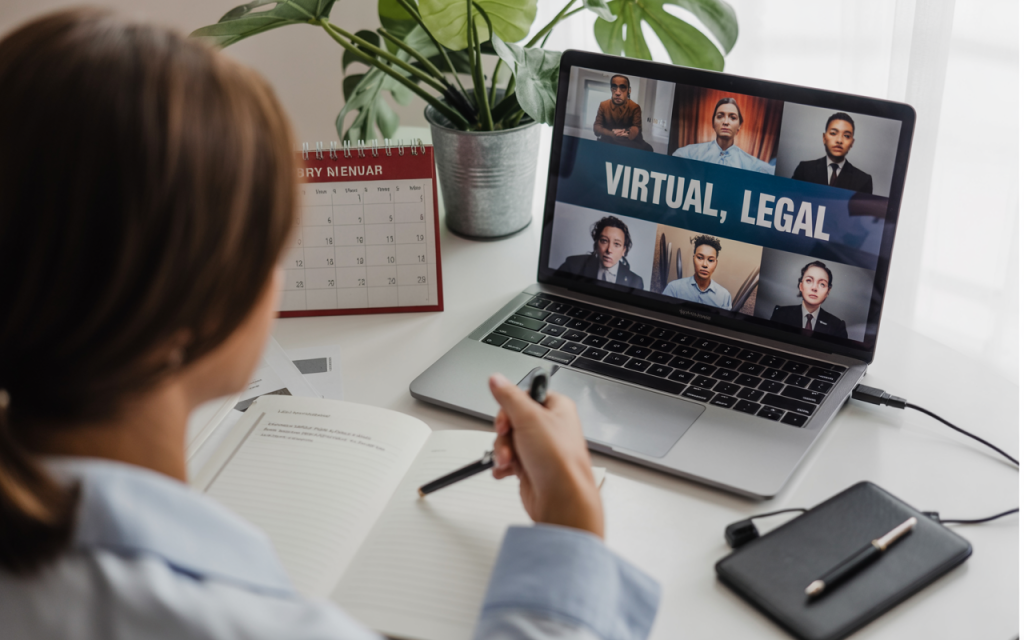
The Future of Content Creator Law
As the influencer industry grows, content creator law will become even more important. New laws and regulations are being made to protect both creators and their audiences. Influencers who understand the law and work with good lawyers will be better prepared for the future.
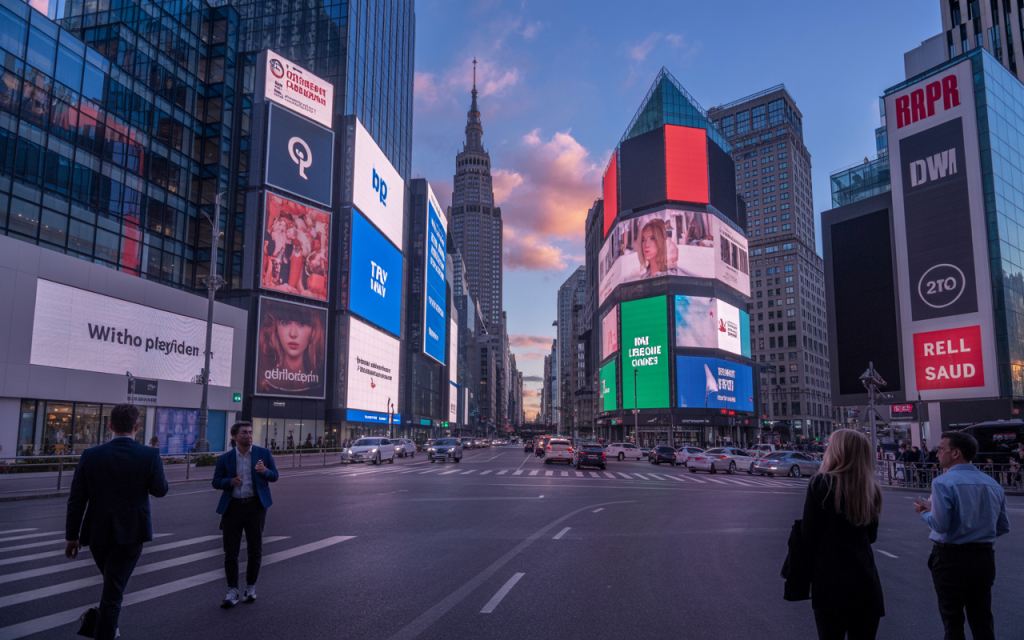
Frequently Asked Questions (FAQs)
Q: Do all influencers need lawyers?
A: Not all influencers need lawyers at the start, but as they grow and sign more deals, legal advice becomes more important.
Q: What does a content creator lawyer do?
A: A content creator lawyer helps with contracts, intellectual property, advertising rules, privacy, and disputes.
Q: How much does a content creator lawyer cost?
A: Costs vary, but many lawyers offer free first consultations and fixed fees for simple work.
Q: Can I use online legal templates instead of a lawyer?
A: Templates can be helpful for simple contracts, but for important or complex deals, it’s best to get advice from a real lawyer.
Q: What should I do if my content is copied by someone else?
A: Contact a lawyer who can help you take down the copied content and protect your rights.
Q: Do I need to say if I’m paid to promote a product?
A: Yes, in most countries you must clearly say if you are paid to promote a product.
Q: What is intellectual property and why does it matter for influencers?
A: Intellectual property is the legal right to creative work. It matters because it protects your content from being stolen or misused.
Q: How can I find a good content creator lawyer?
A: Look for lawyers with experience in online content, social media, and digital platforms. Ask for recommendations from other creators.
Q: What are the biggest legal risks for influencers?
A: The biggest risks include signing bad contracts, copyright infringement, failing to disclose paid partnerships, and privacy violations. Legal advice can help you avoid these problems.
Q: How can I stay up to date with content creator law?
A: Follow legal news and blogs about content creation, join online communities for creators, attend workshops or webinars, and talk to other influencers about their experiences.
Conclusion
Content creator law is no longer optional for influencers—it’s essential. As the online creator economy grows, so do the legal challenges and opportunities. By understanding content creator law, influencers can protect their work, secure their income, and build lasting careers. Whether it’s negotiating contracts, safeguarding intellectual property, or following advertising rules, legal knowledge gives creators confidence and peace of mind. Staying informed and working with trusted legal professionals will help influencers navigate the ever-changing digital landscape and ensure their success for years to come.

